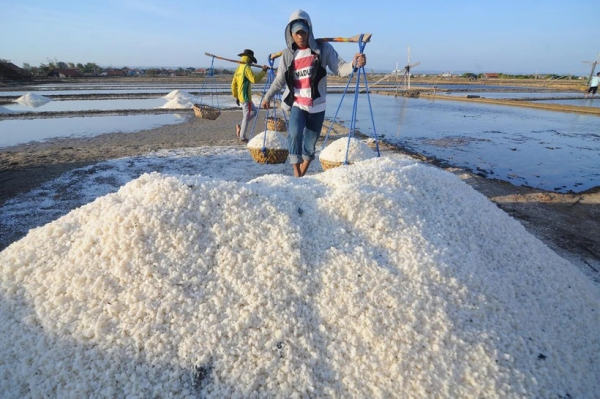ຂປລ
(KPL/VNA) Indonesia continues to face a shortage of salt and have to import salt despite having expansive seas, Director General of Chemical, Pharmaceutical, and Textile Industries of the Ministry of Industry (Kemenperin) Reni Yanita has said.

Illustrative photo (Photo: thejakartapost.com)
(KPL/VNA) Indonesia continues to face a shortage of salt and have to import salt despite having expansive seas, Director General of Chemical, Pharmaceutical, and Textile Industries of the Ministry of Industry (Kemenperin) Reni Yanita has said.
Reni said local farmers and cooperatives are only able to supply 2.5 million tonnes of salt. Meanwhile, the domestic salt demand reaches 4.9 million tonnes. It means Indonesia has to import nearly 2.4 million tonnes of salt.
According to her, salt imports are still necessary to cover the lack of domestic salt supply, although the amount is adjustable if new investments are incoming.
Food diversification also affects the demand for salt, she said.
Salt imports are also mainly aimed at locally scarce salt specifications, Reni said, giving an example of the chlor alkali plant (CAP) industry. The salt, which contains over 97 percent sodium chloride, is not widely produced by Indonesian farmers and cooperatives.
Through Presidential Regulation Number 126 of 2022 concerning the national salt industry development, the government will ban salt imports for food and pharmaceutical needs, excluding the CAP industry.
However, Reni said that there is a possibility that the import ban for pharmaceutical needs will be relaxed.
KPL